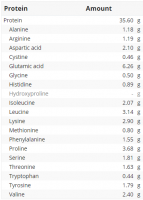Broken man
Member
- Joined
- Sep 11, 2016
- Messages
- 1,693
Wow, never heard of that. My neighbour growing up had to start using an inhaler after a few years of smoking, so I don't think it was anti-histaminic for him...
Did you have allergic reactions go away after you started vaping?
BTW, what else is in the vapes other than nicotine?
The thing is that its big difference between smoking and vaping, cigarette contains more than nicotine and I think that I read that tobacco manufacturers add some things that will make smoker addictive to smoking. I tried smoking and snuffing tobacco but had only negative results only, mainly increased nitric oxide which was very crippling for me. About vaping, when you will buy premium liquid base, it contains only propylenglycol, vegetable glycerin and nicotine. You can choose easy to work with vaporizer and little time to learn how to use it. My personal experience is that nicotine is calming, bowel stimulating, focus improving substance. Its my main weapon against bloating and I like it alot but I am not addictive, I dont need to use it every day. Some studies:
https://www.sciencedirect.com/science/article/abs/pii/S030439401630790X
Medscape: Medscape Access
SMOKING AND ULCERATIVE COLITIS – DOES NICOTINE HELP?
Nicotine exposure alters in vivo human responses to endotoxin
For another info, search for "nicotine celiac" by memeber "Travis".


